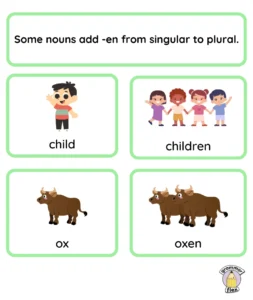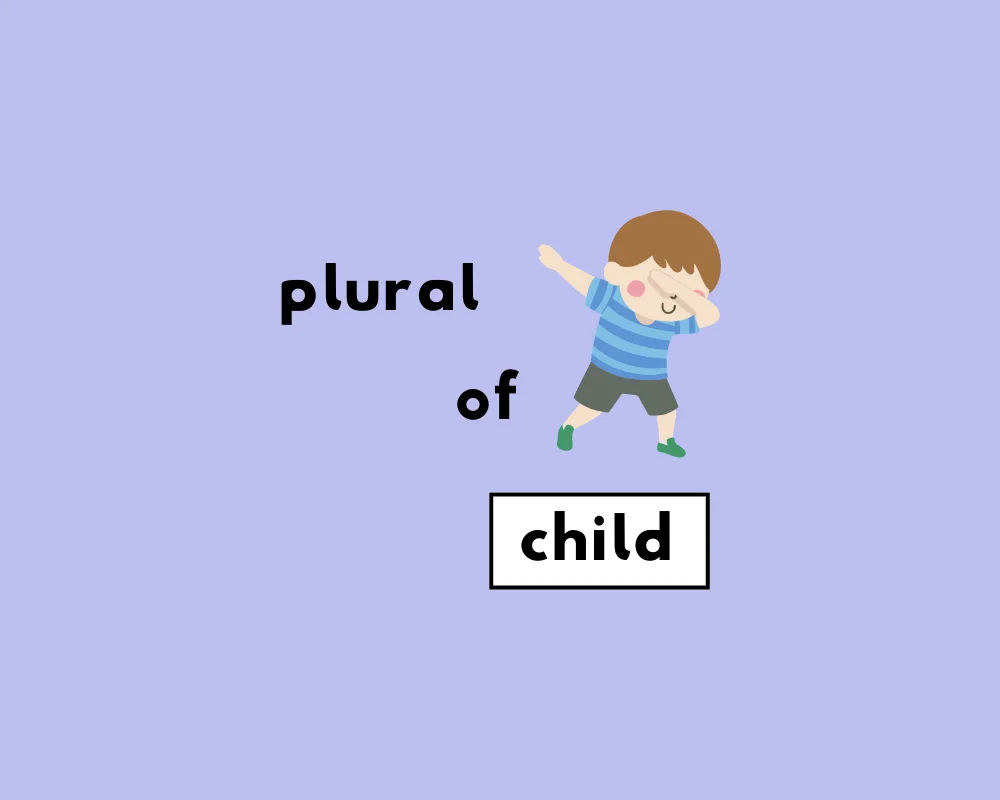What’s the plural of “child”?

The park was filled with playing children.
The hikers needed comfortable shoes for their feet.
There were many child at the party.
Two womens stood waiting by the door.
The plural of child (which is a singular noun), is children (plural noun). Like man and woman (the plural of which are men and women, respectively) children is a similarly irregular plural noun in English since it doesn’t end in -s/-es.

What’s the singular of “child”?
Child is singular. Children is plural.
What does the word child/children mean?
The word child is defined in the dictionary as:
A boy or girl from the time of birth until he or she is an adult, or a son or daughter of any age: an eight-year-old child.
Other irregular nouns
Child/children is irregular in English. Regular plural nouns add an –s or -es to denote a plural noun: children evidently does not modify this way to show a plural.
Children comes from the Germanic languages and demonstrates what’s known as the I-mutation or I-umlaut. Like other irregular nouns of German origin, children interchanges the vowels from singular to show plural: child to children.
Similarly, nouns like goose singular switches to geese as plural; tooth to teeth, and foot to feet. See the chart of irregular plural nouns that show the I-mutation, or “a back vowel is fronted or a front vowel is raised if the following syllable contains /i/, /ī/ or /j/”.
Child’s irregular plural adds -en: child becomes children, like ox becomes oxen.
Synonyms for child
- kid
- youngster
- youth
- offspring
- cub
- minor
- offspring
Examples of “child” in sentences
1. As a child, Bob lived in Boston.
2. As a child I didn’t eat vegetables.
3. He’s such a child if he doesn’t get his own way.
4. Me, I’m a child of the 60s.
5. When I was a child the summers seemed to go on for ever.
Examples of “children” in sentences
1. Both her children are now married with children of their own.
4. She took care of the children.
5. Tom got angry at the children.
Origin of the word child
From etymology online on child (n.), “from comes from the Proto-Germanic kiltham .”
Other confused plural nouns
Work Sheet
What is the correct plural form of “child”?
According to the post, the plural form “children” is an example of what type of noun?
Which of these is NOT listed as an irregular plural noun from Germanic origin in the post?
The singular form of “children” is:
The post gives “children” and “oxen” as examples of irregular plurals that add what ending?
The park was filled with playing .
The hikers needed comfortable shoes for their .
The plural of “man” is .
The post states that is a singular noun, while children is a plural noun.
An incorrect usage mentioned in the post is “Two stood waiting by the door,” because it should use the irregular plural form.
Frequently Asked Questions
What is the plural of “child”?
+
Why is “childs” wrong?
+
Is “children” singular or plural?
+
How is “children” plural formed?
+
Give an example using “children”.
+
Yash, D. "What’s the Plural of Child?." Grammarflex, Jun 18, 2025, https://www.grammarflex.com/whats-the-plural-of-child/.
Sources
-
Definition of child.











